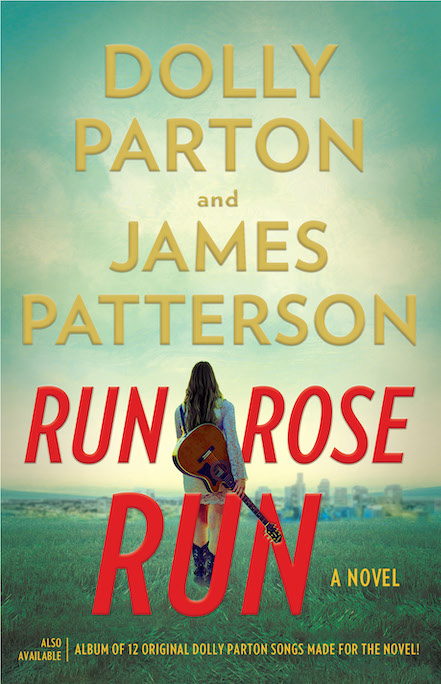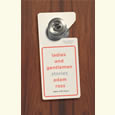What E-Books Really Cost
If no one’s paying for paper and ink—or binding and shipping and storing—why should a download cost more than a buck? Chapter 16 counts the reasons
(The views and opinions expressed in this piece are those solely of the original author. They do not necessarily represent those of Chapter16.org, Humanities Tennessee, and/or any/all other contributors to this site.)
The Justice Department rode in on a white charger last week to defend the American consumer from predatory pricing in the e-book market. The hitch? Justice wasn’t aiming for Amazon, the online goliath that’s selling e-books at a loss to drive sales of its Kindle e-reader (and, not coincidentally, create a de facto monopoly of the e-book market). Instead, the target is Apple and five U.S. publishers destined for extinction if Amazon realizes what increasingly looks like its ultimate goal: to become an entirely self-contained, in-house publishing industry—Amazon the agent, publisher, distributor, and bookstore. It’s not entirely unreasonable to wonder if, somewhere deep in the bowels of its corporate megalopolis, Amazon is preparing to beta-test an e-author, too.
In announcing the lawsuit, Justice accused executives of Apple, Hachette, HarperCollins, Macmillan, Penguin, and Simon & Schuster of colluding to set prices for e-books sold through the Apple store. On its face, the suit appears to have merit. The whole idea behind a free-market system is competition: when companies compete for customers, the idea goes, they lower prices and simultaneously raise both quality and innovation. Apple denies the charges, but if publishers did meet “in private rooms for dinner in upscale Manhattan restaurants,” as Attorney General Eric Holder alleges, to agree on the price Apple would set for e-books, that’s technically collusion between competitors.
The only problem: in today’s economy for books, e- or otherwise, the real competitor publishers face is not each other. It’s Amazon.com.
If publishers did meet privately to agree on the price Apple would set for e-books, that’s technically collusion between competitors. The only problem: in today’s economy for books, e- or otherwise, the real competitor publishers face is not each other. It’s Amazon.com.
If competing publishers did take the extraordinary risk of colluding to set e-book prices, it’s only a measure of how dangerous Amazon really is to their survival. Back when the Kindle was effectively the only e-reader in town, it was easy for Amazon to create a monopoly on e-books. The problem was the cost of the e-reader: when the Kindle came out in 2007, it retailed for a hefty $399. To nudge sales of such an expensive electronic device, Amazon began selling brand-new e-books for $9.99—less than Amazon itself had paid publishers for the titles. Meanwhile, the hardcover versions of the same books were listed at $24.99 or higher.
That very disparity, which allowed technophiles to justify the cost of a cool new gadget, led publishers and booksellers to despair. Why would anyone take the time and trouble of driving to a local bookstore to pay full price for a new book when owning a Kindle meant they could have it instantly, for less than half the price? Small wonder, then, that publishers saw the iPad as a godsend, and the Apple store as their best hope of fair pricing e-books.
Consumers, of course, like many things about the Kindle: its convenience, its portability, its cost (now a rock-bottom $79). Most of all, they like getting e-books for almost nothing.
I don’t mean the below-cost pricing for bestsellers. I mean Amazon is literally giving away a huge number of e-books: classics in the public domain, books by self-published authors hoping to create buzz before raising the price to a dollar or two. As unpublished authors by the hundreds of thousands have flocked to Amazon’s self-publishing arm, this strategy has become increasingly necessary to set one e-book above the vast number of others available, but it’s certainly cost-effective for the writers who rise to the top of the heap.
All this has made plenty of aspiring writers wonder why the publishing industry even needs to exist. Today, traditional publishers too often fail in their mission as literary gatekeepers, snubbing many of the most deserving books while churning out title after title that can only be called tripe. And royalties paid by traditional publishers—typically fifteen percent—can’t possibly compete with Amazon, which pays authors anywhere from thirty-five to seventy percent of the list price on e-books, depending on the specific terms they choose. But for readers, the main argument almost always comes down to cost: now that they’ve had a taste of $.99 books, they wonder why they should pay $9.99 even for bestsellers when an e-book costs nothing to produce. Any blogger knows that e-publishing is only a matter of uploading a document and then pressing the “publish” button.
Publishing’s critics have a point: too often the literary gatekeepers fail their mission, snubbing many of the most deserving books while churning out title after title that can only be called tripe.
As the friend and editor of many talented writers, I have read in manuscript any number of excellent books that so far haven’t seen the light of day because some gatekeeper hasn’t deemed them worthy, or because they’re well written but don’t fit into a clear marketing niche, or because the author isn’t photogenic enough for Good Morning America. Starting out now is particularly hard, not only for literary novelists but even for authors of thrillers and YA and other genres that still sell well. Publishers are too often timid, afraid to take a chance on an unknown. Virtually every “surprise” bestseller today is a book that dozens of publishing gatekeepers passed on before someone took a chance and got behind the book.
Here’s the thing, though: getting behind a book costs money. There may be virtually no production costs in converting a Word file into an e-book, but that doesn’t mean there are no production costs in making it a book worth reading. Someone has to edit it, and editing takes time and skill and diplomacy and courage: editors have to figure out how to make a writer’s work better and still be her own work. They have to find a way to make the writer cheerfully—or at least willingly—go back and back and back to the page until the book is just right.
Editors cost money.
And even when a book is “just right” from the standpoint of language and character and plot and theme, it’s still probably full of typos because making all those changes to a book in progress inevitably introduces errors. So off the book must go to the proofreader.
Proofreaders cost money.
Then there’s the graphic designer (and even e-books need at least a cover), who must make the book look and feel like something a browsing reader might pick up or click on. And someone has to write the jacket copy and the catalog entry.
Designers and copywriters cost money.
Now we’re getting somewhere, but a beautifully written, expertly edited, great-looking book is only a start. It means nothing if readers can’t find it. More than three million individual titles were published in 2010, the most recent year for which figures are available. How can readers find the books they want to read in a field so unfathomably large? The marketing department knows how. Good publicists have relationships with people in the media, relationships which can take years to develop, and they are flexible enough to accommodate a media landscape that changes almost overnight.
Publicists cost money.
And then the book goes into the hands of salespeople, who make calls, in person, to bookstores owned or run by people who fear for their very livelihoods in this book-unfriendly economy. And the publishers’ reps have to convince the bookstores to shell out money for a stack of books by an author they’ve never heard of before. And perhaps invite them for a reading at the store, which is important if the marketing people are to have any hope of convincing the features editor of the local newspaper to review the book or interview the author.
Sales reps cost money.
And assuming all this goes right (the book’s editor doesn’t get fired midstream, say, or a major bookstore chain doesn’t go bankrupt after ordering a million copies), there’s still a decent chance that our book will get no traction with book clubs, or that the economy will take a dive and make people rethink the luxury of any purchases they don’t absolutely need, or some rival publisher will bring out, simultaneously, a book on the same subject or with a similar storyline, and for whatever reason that book will take hold while our book ends up in remainder bins before the quarter is out. The publisher is taking a bath on this book now, and has taken a bath on dozens and dozens—hundreds, thousands—of other titles, too, and so now the next book the gatekeeper takes a chance on really must sell well, just to underwrite the cost of the chance the publisher took on our poor book that never paid out its production costs.
Underwriting failed books costs money.
Here’s the unhappy truth: publishing is an industry that has never been successfully codified, and there’s no formula for a bestseller, whatever anyone claims. It doesn’t matter whether we’re talking about dead-tree books or e-books: unless you’re J.K. Rowling, Stephen King, or John Grisham, there is simply no guarantee your book will sell, and when a book doesn’t sell, publishers get more risk-averse.
But that’s not an argument for ditching the publishing industry. It’s an argument for doing everything possible to keep the publishing industry robust. A healthy publisher can afford to take more chances on writers we’ve never heard about, and can afford to spend the money it takes to make sure there’s a way for us to find out about them.
Remember the roughly three million books published last year? About 300,000 of them were issued by traditional publishers; the rest came from self-published authors. Some of the self-published books are really good, written by people who decided to hire their own editors and designers and publicists and save the disheartening time it takes to find a publisher willing to take a chance. But most of them, hundreds of thousands of them, are just bad. Horrifically, offensively bad. And how, if all the gatekeepers go under, are we supposed to find the good ones?
For more literary news, please visit Chapter 16’s News & Notes page, here.


